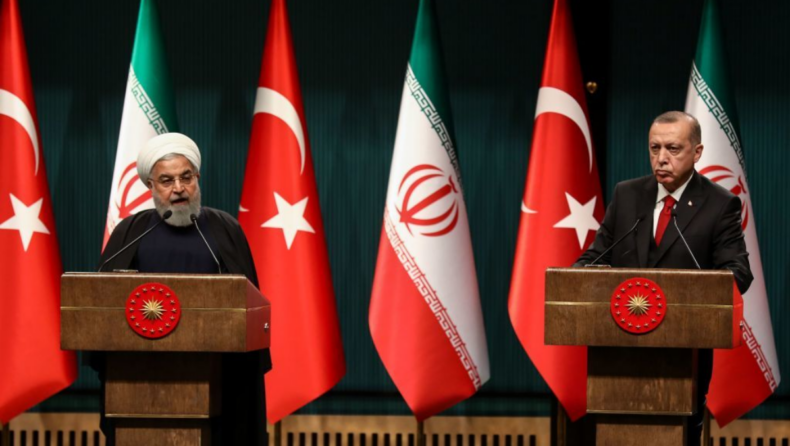
Turkey has become the main force of a joint Western-Arab-Turkish policy. This policy aims at forcing Syrian President Bashar al-Assad to relinquish power. Thus, it has a significant shift in Turkish policy. Also, Prime Minister Recep Tayyip Erdogan’s government had gone to great lengths to foster good relations with Syria, with whom Turkey shares a long land border.
This shift in Syria policy has also cost Turkey dearly in terms of its relations with Iran. Turkey had cultivated Assad’s main ally as part of Foreign Minister Ahmet Davutoglu’s “zero problems with neighbors” policy.
Intermediating between Iran and Western countries
Many American policymakers and publicists are unwilling to distinguish Turkish-Israeli relations from Turkish-American relations. It also misinterpreted Erdogan’s condemnation of Israel’s blockade of Gaza. Turkey as an attempt to gain favour with his Arab neighbours at the expense of Turkey’s relations with not only Israel but the West in general.
Turkey’s subsequent vote in the UN Security Council against imposing additional sanctions on Iran. Thus, it seems to provide further evidence that Turkey had adopted an “Islamic” foreign policy.
The United States’ concern was that Turkey’s desire for good relations with both the West and the Muslim Middle East was a contradiction. Therefore, Ankara’s decision to improve relations with its Muslim neighbours was primarily motivated by religious and ideological concerns. As it was very much important to the ruling Justice and Development Party (AKP).
The Turkish position on Syria
The initial point of contention between Turkey and Iran was their differing approaches to the internal uprising against Assad’s dictatorship. As Iran has put a lot of money into the Assad regime. Hence, it makes it the only Arab ally and the main conduit for supplying Hezbollah with weapons in Lebanon.
For two reasons, Turkey abruptly changed its stance on Syria and aligned itself with the major Western powers.
- First, the ruling Justice and Development Party (AKP) could not afford to be seen as anti-democratic in Syria, given that its own legitimacy is heavily reliant on its democratic credentials.
- Second, once Erdogan’s government realized that Assad’s regime was doomed. So, it is important to protect Turkey’s future interests in Syria. Also, it is necessary for Turkey to have strategic interests, even if it meant jeopardizing relations with Iran.
Strategic autonomy of Ankara
Tensions between Iran and Turkey reflect three larger facts:
- The Arab Spring, particularly the Syrian uprising, revealed the two sides’ underlying rivalry for Middle Eastern and Arab world influence.
- Turkey’s pivot to the east is not motivated by ideology or religion, but rather by sound strategic and economic analyses. As the Middle East’s fluid situation evolves, Turkey will adjust its policies accordingly.
- Lastly, Turkey has squandered far too much of its strategic relationships with NATO. Also, particularly with the United States, in exchange for uncertain gains in relations with Iran.
This does not imply that Turkey will resume its traditional strategic reliance on the United States and its allies. It was a strategy that guided Turkish foreign policy during the Cold War and the decade after. The AKP government dedicated itself to the country’s strategic autonomy as well as increased Middle East activism. However, it is also aware that such policies must not jeopardize Turkey’s NATO and US alliances.
Is Turkey capable of bridging the Islamic-Western split?
After decades of keeping Arab and Muslim countries in the Middle East at arm’s length. Turkey is attempting to improve relations with its neighbours while recasting itself as a regional mediator.
Huseyin Bagci-a professor at Middle East Technical University in Ankara claimed that “Turkey wants to be a messenger between the Islamic world and the Western world.”
The Turkish government genuinely believes it can serve as a link between East and West. This will also be reflecting in Turkey’s foreign policy. The Turkish government offered to act as a go-between for the EU and the Islamic world. Turkey has improved its relations with Iran and has good ties with the West. This will enable it to act as to get into the diplomatic crisis surrounding Tehran’s disputed nuclear program.
Conclusion
Turkey is attempting to maintain its historic relationship with the West while forging new ties with its Muslim neighbours. Turkey’s leaders believe that maintaining good relations with both sides is the best way to preserve and enhance the country’s leverage.













